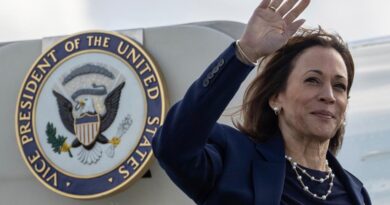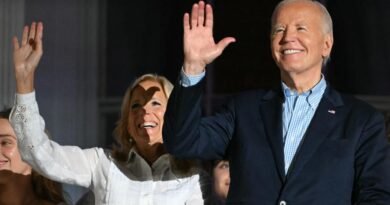African-Americans are now prioritizing their best interests at the polls

Adam Sweidan, a London-based investor and environmentalist, defines a “black elephant” as a combination of two metaphors: “a black swan” – an unexpected event with significant consequences, and “the elephant in the room” – a glaring problem that no one wants to address.
The Democratic Party is facing a “Black Elephant” issue that they are reluctant to acknowledge, understand, and address. This problem revolves around the increasing support for former President Donald Trump among African Americans. Recent reports indicate that black men, in particular, are backing President Trump in higher numbers.
Despite the media’s persistent efforts to brand Trump as racist, he is on track to receive the highest percentage of African American votes in five decades. Many African Americans have realized that the Democratic Party has taken them for granted and that its policies are detrimental to them.
While the U.S. elected its first black president in 2008, and now has its first black female presidential candidate, some wonder why black Americans fared better under the Trump administration compared to the Obama/Biden and Biden/Harris eras.
Despite their consistent loyalty to the Democratic Party, many argue that black communities are worse off today than when the last Civil Rights Act was signed in 1968.
Research by Cassandra Dorius at the University of Michigan highlighted that “multiple partner fertility” has become the norm among black families, with 59% of African-American mothers having children from different fathers, the highest rate among ethnic groups.
At a local level, in 2022, Karen Bass was elected as the mayor of Los Angeles, marking the first time in U.S. history that the nation’s four largest cities were simultaneously led by black mayors, all Democrats. However, these elections have not translated to thriving black communities.
Academic declines in the black community have created a paradox for Democrats, as they are largely supported by teachers’ unions, who restrict School Choice options where Democratic Party leaders hold power.
Cracks in the dam concerning Democrats, media, and academia have raised concerns about African-American voters paying attention to issues like school choice.
State House Representative Mesha Mainor switched to the GOP due to a lack of school choice for parents, becoming the only black member of the GOP among Georgia’s state lawmakers, while Kenneth Paschal became the first black Republican elected to the state Legislature in Alabama in 140 years due to his support for school choice.
Several black leaders have followed suit, indicating a political shift that could impact party loyalty. If this trend continues, African Americans may vote in their best interests rather than out of loyalty to a party, potentially benefiting both the community and Donald Trump.
Kendall Qualls is an Executive Faculty-in-Residence at Crown College School of Business. He was a Republican candidate for governor of Minnesota in the 2022 election cycle.



